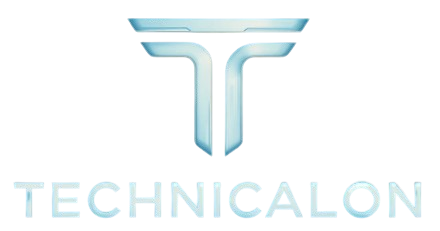Software runs the modern world. Every app on your phone, every website you visit, every tool powering businesses depends on code. Behind this digital infrastructure stand software engineers—the architects who design, build, and maintain technology.
Many people ask one question: How to become a software engineer? The path looks different for everyone, yet the fundamentals remain the same. This guide walks through essential skills, education routes, programming languages, career paths, and growth opportunities.
Understanding the Role of a Software Engineer
What does a software engineer do?
A software engineer applies computer science, engineering, and logic to create reliable systems. Unlike developers who focus mainly on coding, engineers design solutions for complex problems, making applications scalable, secure, and efficient.
Key responsibilities
- Writing and testing code
- Designing system architecture
- Solving performance issues
- Collaborating with teams
- Applying algorithms and data structures
Industries hiring engineers
Technology companies lead the way, yet opportunities spread across healthcare, finance, e-commerce, gaming, cybersecurity, automotive, and government. Almost every industry needs software.
Essential Skills Required to Become a Software Engineer
Technical expertise
Programming languages, data structures, algorithms, and database management form the backbone of engineering. Strong problem-solving ability sets apart excellent engineers from average ones.
Soft skills
- Clear communication
- Effective teamwork
- Logical thinking
- Adaptability
Learning mindset
Technology evolves daily. Engineers who continue learning remain relevant, while those who stop fall behind.
Education Pathways
Computer science degree
Traditional yet powerful. Degrees cover algorithms, operating systems, networking, and mathematics. They provide structure, though they demand years of study and high cost.
Coding bootcamps
Short-term programs lasting months instead of years. Bootcamps emphasize hands-on projects and job readiness.
Self-taught route
Online platforms, tutorials, and project-based learning allow motivated learners to succeed without formal education. Discipline and consistency matter most here.
Learning Programming Languages
Best for beginners
- Python – simple, versatile, popular in AI and data science
- Java – enterprise systems, Android development
- JavaScript – web development, front-end and back-end
- C++ – performance-heavy systems, gaming engines
Front-end vs Back-end
- Front-end: HTML, CSS, JavaScript, React
- Back-end: Python, Java, Node.js, Ruby, C#
Choosing your first language
Start with Python or JavaScript. Both easy to learn, widely used, and in demand. Expand to other languages once comfortable.
Building a Foundation in Computer Science
Algorithms and data structures
Sorting, searching, stacks, queues, trees, and graphs build problem-solving skills. These topics dominate coding interviews.
Object-oriented programming (OOP)
Principles such as encapsulation, inheritance, and polymorphism allow clean, scalable code.
Databases, operating systems, networking
Understanding how data is stored, how systems work, and how networks communicate builds complete knowledge for real-world engineering.
Practical Experience and Projects
Personal projects
Build calculators, blogs, chat applications, or task managers. Expand into larger systems like e-commerce apps. Projects demonstrate ability better than theory.
Open-source contributions
Collaborating on open-source showcases teamwork, code quality, and dedication. Recruiters respect this experience.
Internships
Internships provide industry exposure and a stepping stone into full-time roles.
Tools and Technologies Every Engineer Should Master
Version control
Git and GitHub track changes, enable collaboration, and act as proof of your coding journey.
Agile development
Agile, Scrum, and Kanban improve team efficiency. Knowledge of these frameworks makes engineers industry-ready.
Testing and debugging
Unit testing, integration testing, and debugging skills ensure software reliability.
Portfolio and Resume
Showcasing projects
Highlight real-world projects, write clear documentation, and organize repositories. Quality matters more than quantity.
Resume essentials
Emphasize skills, projects, and achievements. Keep it concise and focused.
Interview preparation
Practice algorithms, system design, and behavioral questions. Consistent preparation builds confidence.
Career Opportunities
Front-end developer
Specializes in interactive, user-facing applications.
Back-end developer
Manages servers, databases, and logic.
Full-stack developer
Handles front-end and back-end, offering complete solutions.
Specialized paths
- AI/Machine Learning Engineer
- Cloud Engineer
- Cybersecurity Specialist
- Mobile App Developer
Salary and Growth
Entry-level salaries
Competitive from the start, varying by location, skill, and industry.
Career advancement
Growth into roles like architect, technical lead, or manager is common with experience.
Future demand
Software engineers remain highly sought after worldwide. Automation and digital transformation continue to fuel demand.
Common Mistakes to Avoid
- Learning only theory without practice
- Ignoring teamwork and communication
- Neglecting new technologies
Conclusion
Becoming a software engineer requires patience, persistence, and continuous growth. Whether through a degree, bootcamp, or self-learning, success depends on building strong foundations, practicing consistently, and developing problem-solving skills.
Every expert once started as a beginner. Stay focused, keep building, and your path to software engineering will open.

